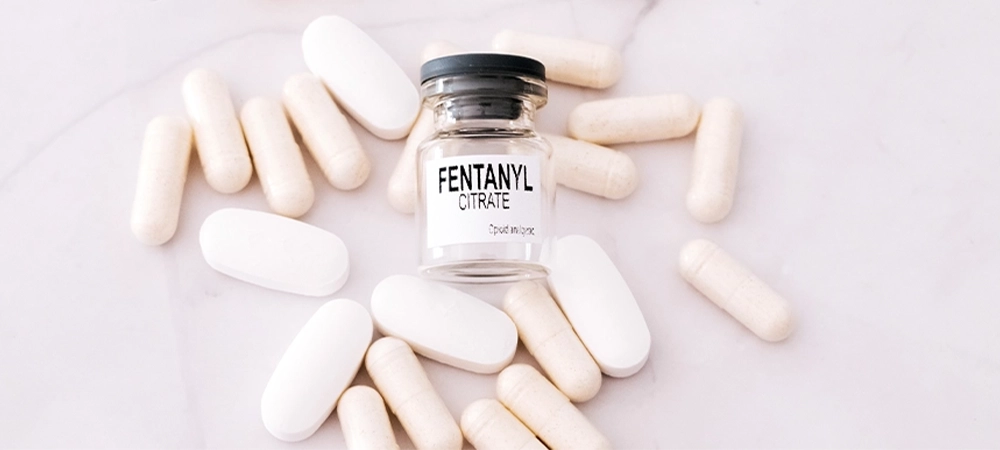Drug addiction is a complex condition that affects the brain, leading to compulsive substance use despite harmful consequences. Some drugs have a higher potential for addiction due to their effects on the brain’s reward system, creating intense cravings and dependency.
Understanding which drugs are most addictive can help individuals recognize the risks and seek professional help when needed.
Related Article: Why Are Opioids Addictive? Understanding the Science and Risks
Heroin
Heroin is one of the most addictive substances, classified as an opioid. It rapidly enters the brain, producing an intense euphoria followed by drowsiness and slowed breathing. Heroin binds to opioid receptors, leading to a surge of dopamine that reinforces repeated use.
Tolerance develops quickly, making users need higher doses to achieve the same effect. Withdrawal symptoms, including severe pain, nausea, and anxiety, make quitting extremely difficult without professional treatment.
Related Article: How Heroin Addiction Affects Cognitive Function and Memory
Cocaine
Cocaine is a powerful stimulant that increases dopamine levels in the brain, creating feelings of extreme pleasure and energy. However, the effects are short-lived, leading users to take repeated doses to maintain the high.
This cycle can result in rapid addiction. Chronic use can cause serious health issues, including heart problems, paranoia, and cognitive impairment. Cocaine withdrawal is marked by depression, fatigue, and intense cravings, making recovery challenging without medical support.
Methamphetamine (Meth)
Methamphetamine, commonly known as meth, is a highly addictive stimulant that affects the central nervous system. It triggers an intense release of dopamine, causing euphoria and increased energy.
Over time, meth use damages brain cells, leading to memory loss, mood disturbances, and severe dental issues (often called “meth mouth”). The drug’s long-lasting effects and devastating impact on physical and mental health make it one of the most dangerous substances.
Fentanyl
Fentanyl is a synthetic opioid that is 50 to 100 times stronger than morphine. It is frequently prescribed for severe pain management, but illicitly manufactured fentanyl has contributed to a surge in overdose deaths.
Due to its potency, even a small amount can lead to fatal respiratory depression. Fentanyl addiction develops rapidly, and withdrawal symptoms can be severe, making professional detox and treatment essential for recovery.

Alcohol
Although legal, alcohol is one of the most widely abused substances and has a high potential for addiction. Regular alcohol use alters brain chemistry, leading to dependence.
Chronic alcohol abuse can cause liver disease, heart issues, and cognitive decline. Withdrawal from alcohol, especially in severe cases, can be life-threatening, making medical supervision necessary for detox.
Related Article: Is Alcohol Addiction Hereditary? Understanding Genetics and Risk Factors
Nicotine
Nicotine, found in cigarettes and vaping products, is one of the most addictive substances due to its ability to rapidly stimulate the brain’s reward system. Users often develop dependence quickly, and withdrawal symptoms include irritability, anxiety, and intense cravings.
Long-term nicotine use is linked to various health risks, including lung disease, heart disease, and cancer.
Benzodiazepines (Benzos)
Benzodiazepines, such as Xanax, Valium, and Ativan, are prescribed for anxiety and insomnia. However, prolonged use can lead to dependence. These drugs enhance the effects of GABA, a neurotransmitter that produces calming effects.
When used excessively, benzos can cause drowsiness, confusion, and memory impairment. Withdrawal from benzos can be severe, including seizures and life-threatening complications, making medical detox crucial.
Prescription Opioids
In addition to heroin and fentanyl, prescription opioids like OxyContin, Percocet, and Vicodin are highly addictive. They work by blocking pain signals while producing feelings of relaxation and euphoria.
Even when taken as prescribed, opioids can lead to dependence over time. The opioid crisis has highlighted the dangers of these medications, with many individuals transitioning from prescription opioids to illicit drugs due to addiction.
MDMA (Ecstasy/Molly)
MDMA is a synthetic drug with stimulant and hallucinogenic properties. It increases serotonin, dopamine, and norepinephrine levels, creating feelings of emotional closeness and euphoria. While not as physically addictive as other drugs, MDMA use can lead to psychological dependence, with users seeking repeated experiences.
Long-term effects include mood disturbances, cognitive impairment, and damage to serotonin-producing neurons.
LSD and Hallucinogens
Lysergic Acid Diethylamide (LSD) and other hallucinogens like psilocybin (magic mushrooms) and PCP (Phencyclidine) can cause altered perceptions and hallucinations. While they are not considered physically addictive, some users develop psychological dependence, continuously seeking the altered states these drugs produce.
Frequent use can lead to persistent hallucinogenic effects, such as hallucinogen persisting perception disorder (HPPD), which causes flashbacks and mental health disturbances.
Related Article: Family Counseling for Addiction: Healing Together on the Path to Recovery

Seeking Help for Addiction
Addiction is a medical condition that requires professional intervention. At Addiction Rehab Toronto, we offer comprehensive treatment programs tailored to each individual’s needs. Our services include supervised detox, inpatient treatment, virtual rehab, and family therapy.
With a team of dedicated professionals and a commitment to high-quality care, we provide the support necessary for lasting recovery. Our lifetime aftercare program ensures that clients have ongoing resources and guidance beyond their initial treatment.
Related Article: What to Expect During the Admission Process at Addiction Rehab Toronto
Take Control of Your Recovery
If you or a loved one is struggling with substance abuse, don’t wait to seek help. Addiction Rehab Toronto provides a safe, supportive environment for recovery.
Contact us today for a confidential consultation and take the first step towards a healthier future.







